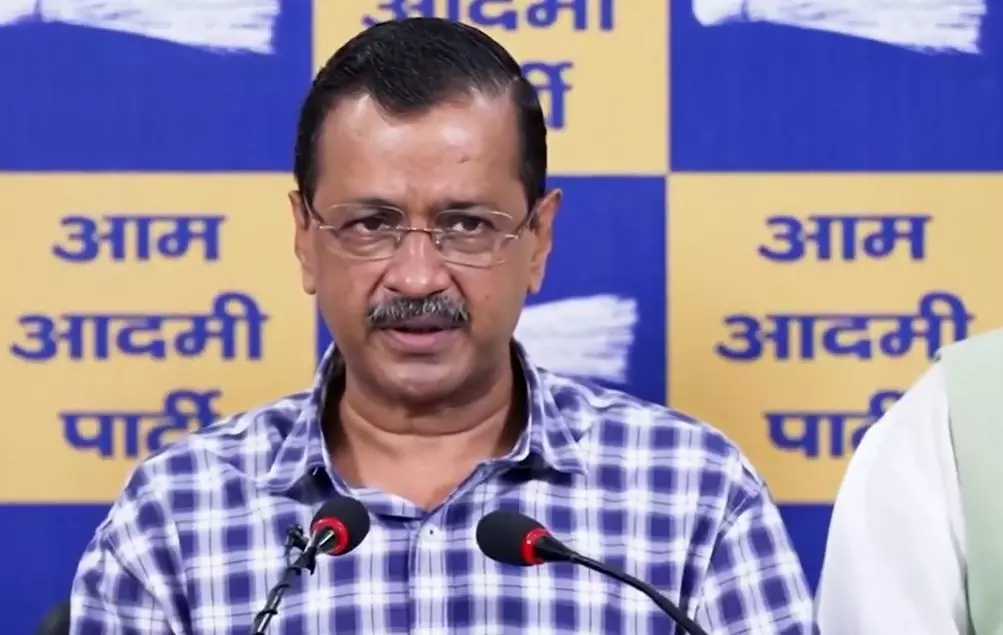
Kejriwal slams Amit Shah over new anti-graft bill, asks ‘Should PMs also resign?’
The AAP leader asked if a minister who inducts people with criminal cases should also resign, responding to the proposed bill

AAP leader and former Delhi Chief Minister Arvind Kejriwal on Monday (August 25) took a swipe at Union Home Minister Amit Shah over the proposed law to remove the Prime Minister, Chief Minister and Ministers if they are jailed for over 30 days in serious criminal cases. Kejriwal asked if a person inducts people guilty of serious crimes into his political party, clears all their cases and makes them ministers, should such a minister or Prime Minister also resign from their post.
‘Shouldn’t such a minister or PM resign’
Taking to X, Kejriwal also asked how many years of prison sentence should be awarded to such people, adding that if someone is jailed due to false allegations, then for how many years the minister who framed the false case should be jailed.
“If a person includes people guilty of serious crimes in their political party, clears all their cases and makes them ministers, deputy chief ministers or chief ministers -- should such a minister or prime minister also resign from their post?” stated Kejriwal in a post on X in Hindi.
"How many years of jail should such a person receive? If someone is falsely accused and sent to jail, and later proven innocent, then how many years of jail should the minister who framed the false case get?” he added.
The AAP has often accused the BJP of inducting tainted leaders accused of serious offences into their party, frequently referring to the BJP as a “washing machine”.
Also Read: Why 130th Constitution Amendment Bill reeks of a red herring
‘Centre falsely implicated me’
Kejriwal was responding to a post by the Office of Amit Shah, which quoted the minister's remarks on the controversial bills that seek to bar prime ministers, chief ministers, and ministers from holding office if they remain in jail for 30 days or more.
Kejriwal was arrested in March last year by the Enforcement Directorate in an excise policy-linked money laundering case, making him the first sitting chief minister to be arrested.
In another post, Kejriwal said, “When the Centre, under a political conspiracy, falsely implicated me in a case and sent me to jail, I ran the government from jail for 160 days.” He said that in the past seven months, the BJP government in Delhi has brought the city to such a state that the people of Delhi are now remembering the government that functioned from jail.
“At least during the time of the jail-run government, there were no power cuts, water was available, free medicines were provided in hospitals and mohalla clinics, free tests were conducted, a single spell of rain didn’t wreak such havoc in Delhi, and private schools were not allowed to act arbitrarily or engage in hooliganism,” he said.
The government introduced the Constitution (130th Amendment) Bill, 2025, during the Monsoon session of Parliament, which has been criticised by a section of parties that allege that it will allow the targeting of political opponents.
Also Read: Amit Shah slams DMK, Stalin for opposing 130th Amendment Bill
Owaisi’s charge
Meanwhile, pointing out that the provisions of the new proposed law state that the resident can remove the Prime Minister, AIMIM chief Asaduddin Owaisi asked can any President actually make the Prime Minister resign.
“ We have stated in the Constitution that the President of India will be guided by the aid and advice of the Council of Ministers. This article is in the Constitution. This proposed bill says that the President can remove the Prime Minister. What is this? This clearly clashes with that article. Secondly, now accept the reality, can any President actually make the Prime Minister resign?” Owaisi told PTI.
(With agency inputs)

